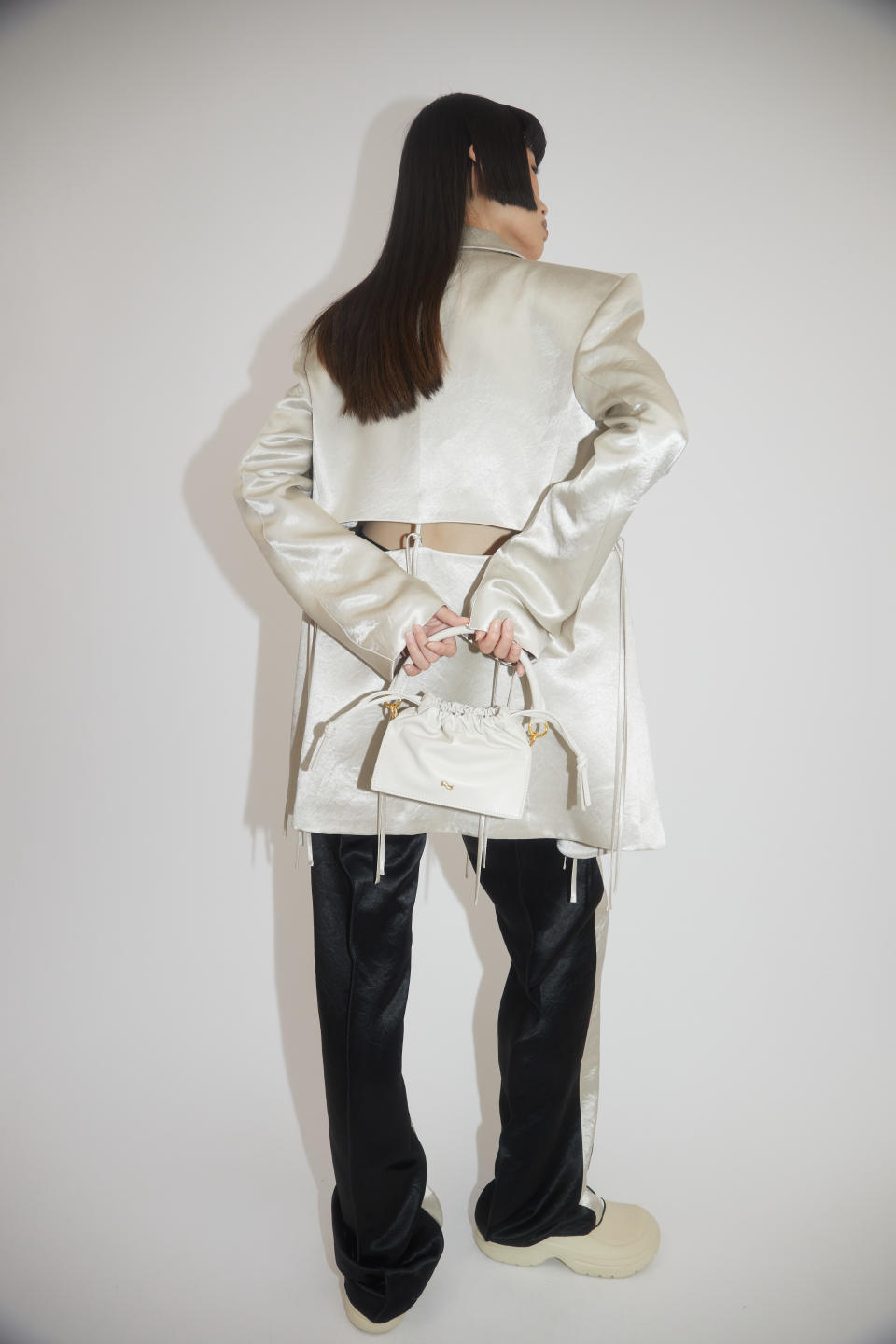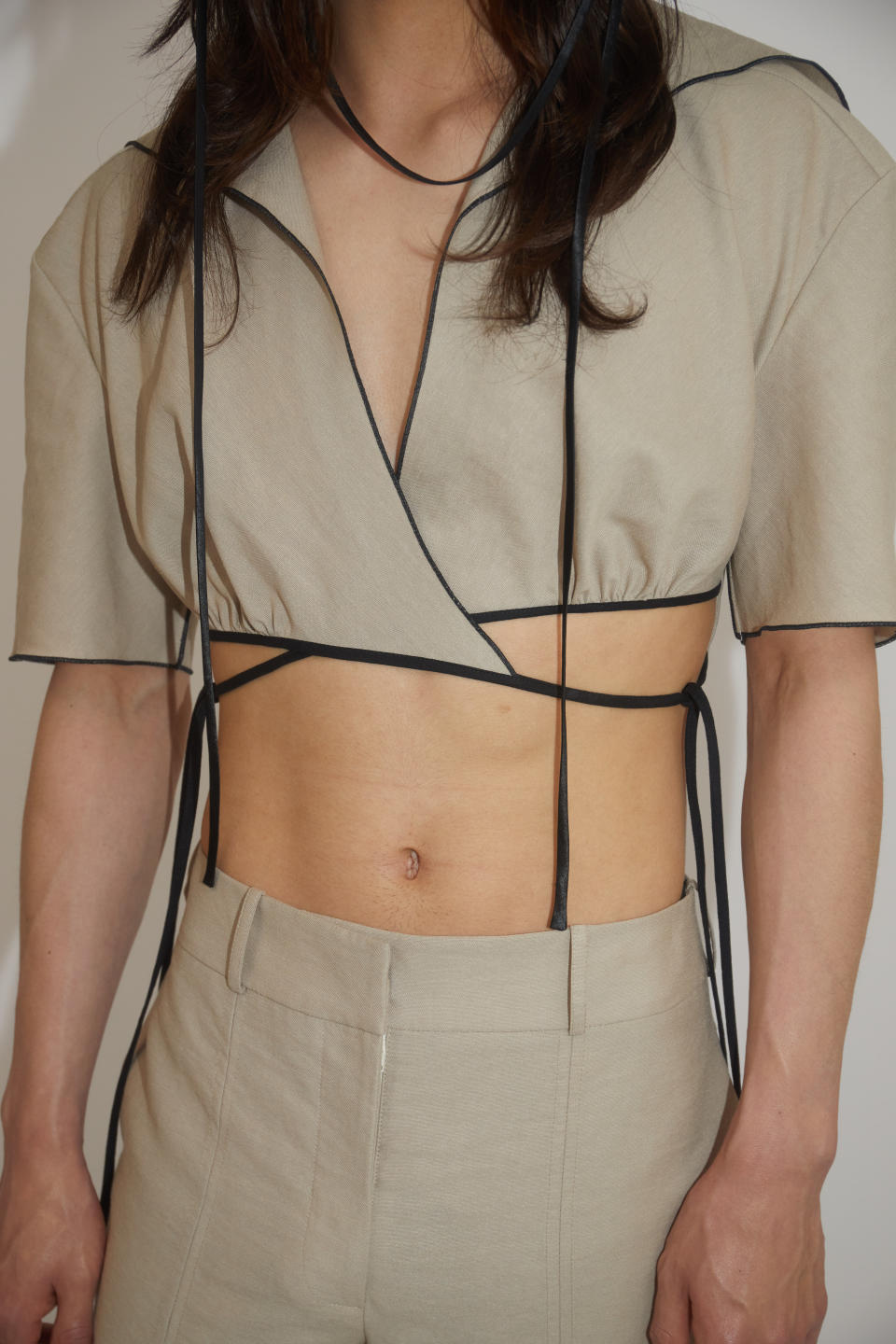Why Are So Many Accessories Brands Going Into Ready-to-wear?

LONDON — Coming up with a viral shoe style or the “It” bag of the season isn’t always enough for accessories brands seeking growth and looking to sustain customer interest, which is why many are turning to ready-to-wear now that the accessories market is returning to premium luxury, heritage names and classic styles.
“Bags has been the most challenging category globally. Customers took a long pause and only really started shopping for contemporary bags again earlier this year, which is when we started to see a significant spike in sales,” said Naza Yousefi, whose label Yuzefi built its name on modernist, accessibly priced bags, and expanded into rtw earlier this year. “Accessories can be quite volatile and competitive, so eventually any brand would need to diversify and grow into other categories.”
More from WWD
Indeed, contemporary mainstays like Miista, Elleme and Wandler have all delved into clothing in the last year, creating opportunities to connect with customers, express their creative vision — and increase revenues.
For Yuzefi, the response was instant: The label’s debut fall 2021 collection was picked up by Harrods, among other international retailers, and popular pieces like the cutout blazer and a cropped “bra jacket” have been “selling out in a matter of weeks” on the brand’s e-commerce platform.
Even as the contemporary handbag market picks up once again designers are realizing the importance of building an entire brand universe and not putting all of their eggs in one basket.

Courtesy of Yuzefi
“It’s all about the world you build, not just the end product,” said Elza Wandler, who has also been testing rtw with a new range of cool, oversized denim and leather pants in the same saturated, striking color palette as the brand’s signature handbags. The collection has already gained traction from its prelaunch on Matchesfashion, with more major retail launches to follow.
“The core will always be bags, but it’s nice to expand our world a bit. It’s always intuitive, and about what feels good and what we can build momentum around. Today it’s leather trousers, next time it might be a perfume,” said the designer.
For some brands delving into rtw was also the best way to invest back into the business and fuel further growth.
Paris-based Elleme is one such label: Despite the slowdown in the contemporary market, the brand said it went against the grain and managed to grow its team and achieve a “record year” with its bag and shoe business due to its diversified sales network.
The team grew to 40 people in the last year, and the pandemic gave the company opportunity to snap up new talent. Now the business is expected to double with the addition of rtw.
“With the pandemic hitting the industry hard, we managed to build a very talented team joining us from very established luxury brands from the U.K. and Paris. Our suppliers welcomed us with open arms, as they were affected by (closures) of their traditional brick-and-mortar partners,” said Jingjing Fan, Elleme’s creative director.
“While the world stopped, we were all in to prepare our brand for the next phase of development, going from an accessories brand, to a full-range, established fashion brand.”

Courtesy of Elleme
Now in its second season producing rtw, the brand has set up a bigger Paris studio and plans to produce up to four collections — and 120 looks — a year. Its strategy of “democratic luxury” at more accessible price points remains the same, with rtw priced between 220 euros and 750 euros. Fan said buyers are responding and they are now working more closely on “cross-category collaborations,” while the addition of fashion shows brings more storytelling opportunities.
“Our vision of the business is definitely more complete now. We design our accessories, shoes and rtw in unison to present one complete universe. The colors, details and the feeling we want to project are all in sync,” added Fan. She presented her spring 2022 collection — a mix of soft pastels, barely there tops and fuss-free separates — digitally, as part of the official London Fashion Week schedule.
Laura Villasenin, founder of the contemporary shoe label Miista, employed a similar attitude and invested in establishing the company’s own factory in Spain last year in order to launch rtw with a strong supply chain and to control the manufacturing process from beginning to end.

Courtesy of Miista
It was a risky move but the right way forward for Villasenin, who said she wanted to take her business to the next level after keeping close ties with her customer base throughout lockdown. She employed light, humorous video content that resulted in direct sales spikes during the lockdowns.
“I’ve always had lifestyle in mind, both in terms of design and manufacturing,” she said. “Looking at how the world is moving and the future of our industry, [investing in our own factory] is a decision I’m proud of, even though it’s risky, because controlling our supply chain was extremely important to me.”
Her debut collection captured this story of localized, end-to-end manufacturing: It was filmed inside the factory to highlight that the clothes are made ethically. It also featured a lot of artisanal touches including ropes, raw edges and macramé details to showcase the tactility and handcraft of the pieces.

Courtesy of Yuzefi
The handmade knitwear in the collection presented a major commercial opportunity according to the designer, who is also planning to highlight the artisanal elements of her work further, creating programs to encourage students in the Galicia region of Spain, where her factory is based, to take up apprenticeships and keep local craft alive.
“There was an extremely strong reaction from both retailers and our audience to the artisanal feel. I think people could now fully understand the complete aesthetic of Miista and appreciated us showing who is behind our supply chain, without anything to hide,” said Villasenin, who plans to focus on selling direct-to-consumer for her debut season and will open to wholesale later in the year.
Sign up for WWD's Newsletter. For the latest news, follow us on Twitter, Facebook, and Instagram.

